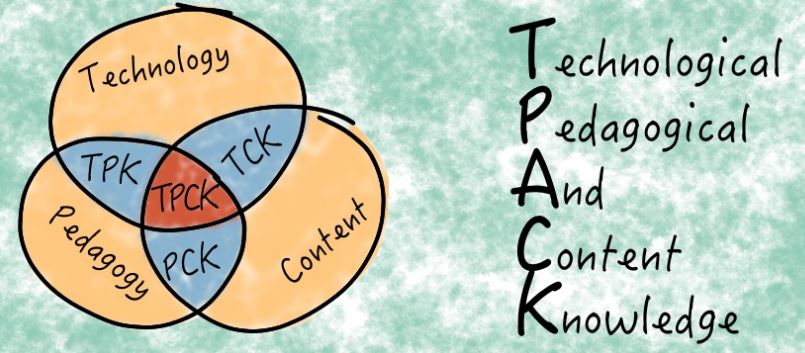Written by: Vera Tillner
Prior to his ELTAS workshop on Blended Learning at the end of this month, we asked Pete Sharma a few questions about digital transformation and what it means to the English Teaching Industry.
Digital Transformation has been a buzz word across industries for years now. Do you think the English language learning market, and trainers in particular, are suitably prepared for upcoming changes? What are the biggest challenges for trainers?
Trainers probably slot into different groups – with ‘early adopters’ being well-prepared, whereas the ‘late majority’ are less well-prepared and some ‘laggards’ (sadly) even considering leaving the profession. So, rather a mixed picture.
The language learning market is perhaps a misnomer, as it gives a feeling of ‘cohesion’ whereas in reality there are many different cultures. Publishers (for example) are still coming to terms with the digital revolution, and we are still not quite sure about the future of print course books.
The biggest challenges for trainers include moving outside one’s comfort zone – it’s easier to be nostalgic and wishing for the status quo than to risk trying to do something differently.
The moment that a trainer recognises that they cannot ‘control’ every situation as teachers once did (they were the ‘knowers’ and needed to input to ‘empty vessels’) and actually admit that a 20-year old will be able to get the sound working on the computer better than the teacher is a significant breakthrough moment. This will help the teacher be effective in their new role as ‘facilitator’.
Being able to articulate our own beliefs and beliefs is a challenge. Recognising ‘cognitive dissonance’, for example. I meet many teachers who use technology in their own life (sending emails) but are reluctant to do so in their professional life (“in case it doesn’t work”). It’s quite a challenge to recognise our own prejudices.
How is technology changing the way people use English for work?
I would say in innumerable ways, to the extent that the ‘new ways’ of doing things are coming so fast that we quickly forget how we did them before (like remembering the typewriter before the word processor!). Examples include:
- Rise in the number of emails / emails as a genre
- Marketing – viral advertising
- Social media – etiquette
- Micro-blogging – Twitter / tweets as a new genre
- Importance of the company website
- Blogging – corporate blogging
- Training – rise of online training
- Conference calls
- Social etiquette – use of mobile phones in social situations
- Rise of the ‘backchannel’ affecting presenters (e.g. everyone in the audience communicating on mobile devices)
- New presentation tools – Prezi
This list is the tip of the iceberg. With many new challenges on the horizon – the use of algorithms in the financial world and the rise of AI in general being to the fore.
How do these changes affect English training?
In many ways. They change the words we need to understand and teach – neologisms
There is a great need to stay in touch with how our students do business e.g. how to run an online meeting / how translation tools affect communication
What advice would you give to an English trainer who does not know much about technology?
Look at the TPACK model. It says you need content knowledge (“What’s a phrasal verb”) and pedagogical knowledge (“How to teach phrasal”). The technology is just there to help you (e.g. using the search function on an interactive dictionary to enable you to find phrasal verbs).
Take care to listen to your students and learn about their concerns, rather than focussing (solely) on your own fears and concerns. This will give you (a digital visitor) insights into 21st century learning from digital residents.
Start small. To try and integrate all the technologies out there is too daunting and unworkable. Stay with one thing, get to know it well. Understand why you are using it. E.g. Mentimeter as a voting tool.
Constantly reflect on comparing no-tech approaches to a teaching point and ‘with tech’ options, so you are always aware of the benefits the technology brings to learning, rather than diving in and using a technology ‘because it’s there’.
Stay up to date. There are plenty of ways to do this and no excuse for not knowing what’s happening with the wide range of support around.
What advice would you give to someone starting a career as an English trainer?
Listen to both sides of any argument and apply ‘critical thinking skills’. So if someone says ‘I love Moodle – easy to use’ and someone else says ‘I hate Moodle’, scratch below the surface and get your hands dirty so you yourself get to know about the platform and can contribute to the argument, based on your own experience.
Don’t neglect ‘research’. It’s easy to get swept away with the practical, what works on Monday morning, and to lose sight of theory and linking practice to theory. Join a teacher’s group. The rewards of being part of the conference circuit and local teachers’ groups (ELTAS etc) are immeasurable.
What about technology in your own leisure time? Which device to you switch on first every day?
Probably (like most people?), I check my mails on my Smartphone, which is next to the bed! I dabble, sadly, so I get to know a little about PC AND Mac: I use a variety of tools roughly categorised as Apple in my personal life and Microsoft in my professional life. So, a bit schizophrenic.



